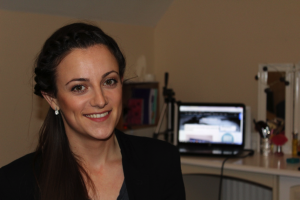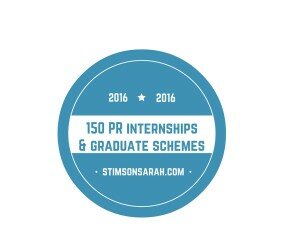I have often argued that one of the reasons that there is such a lack of diversity in PR is that graduates from more diverse backgrounds don’t know enough about the industry to consider it a viable career option. Partly because with a lack of black and ethnic minority role models in communications there are very few people to tell them about what an interesting and challenging career it can be.
But it’s not just ethnically diverse candidates who lack a proper understanding of the industry and I get asked similar questions all the time from all types of graduates who are puzzled by the communications industry and would like to know more, but don’t know where to start.
So, if you’re a student or graduate listen up, here’s what you need to know that no one else has told you.
Public Relations is a very broad term
What does PR mean to you? Do you immediately think of champagne swilling celeb promoters? If you do, you’re not alone. Even seasoned PR practitioners can struggle to explain what public relations is but what you really should know is that it is such a broad term that encompasses many, many different disciplines and sectors – including corporate communications, consumer PR, corporate social responsibility, digital PR, media relations, internal communications, crisis management, brand management, public affairs, financial PR, healthcare PR, technology PR… the list goes on and on and on. Make sure you properly understand all the options before dismissing it as not for you – you may be surprised at the variety of work available in the communications industry.
You don’t need a PR degree
PR degrees have become increasingly popular over the last few years and some of them are very good, but you don’t need one to start a career in PR. In fact, you don’t need a degree at all in many cases as some employers are much more interested in commitment and experience than what you did for three years at university. PR degrees vary and some of them are really not that helpful when it comes to your first job – I know of graduates who spent three years at university and never read any media other than The Metro. I don’t even know how it’s possible to study PR without a broad understanding of the media landscape and current affairs but apparently it’s perfectly possible as they graduate with good grades. If you’re going to study PR with the aim of working in the industry then choose wisely. My advice is to go for a course which offers a year long industrial placement because that experience is going to be extremely helpful when you leave university and start looking for your first job. If you have a degree in another subject, don’t despair. The vast majority of PR employers don’t really care which subject you studied (the exception here is healthcare PR, I’ll come to that later), they just want to see you have fairly decent A level grades and have finished your degree course. The more experience you have the better so make use of your holidays to grab some work experience or an internship to liven up your CV.
You definitely don’t need a masters
I am regularly asked “Will a masters help me get a foot in the door?” and, frankly, the answer is a resounding “no”. By all means study a masters, in PR or in any other subject, if you are interested in the topic, but don’t expect it to be the golden ticket to a junior PR role. Experience trumps education every single time so your time is better spent doing a few internships if the sole aim of your masters is to help you get a job.
Agency vs In-house
What’s the difference? A PR agency or consultancy will work with many different clients. Some specialise in a particular industry and some have a variety of specialisms but the key thing is always that they are offering a service to other companies. In-house PR teams are only doing the communications for that particular company. In the case of large companies (think BT and BP) it may be that the in-house team feels very much like an agency as they have a variety of in-house clients or departments who put different demands on them but the vast majority of in-house teams feel quite different to agency. There are pros and cons to working on both sides. I often hear PRs say that the best start to a career in communications is on the agency side, but I tend to disagree. I think that actually it doesn’t really matter whether you start in-house or agency, just getting 12 – 18 months experience on your CV on either side is the most important thing. Once you’ve hit that 18 month period you’ll need to think carefully about what you want to do next though. If you’re agency side it’s not such a problem as it’s pretty much always possible to move from agency to in-house but if you’re in-house you might find it difficult to transition to an agency once you’ve been there 18 months to two years so if you want agency experience now would be the time to make the move.
Job titles may vary
I did a quick search to see what roles companies are looking to fill at graduate level. All the following job titles popped up
– Graduate corporate communications executive
– Junior account executive
– Account executive
– Intern
– Associate
– Consultant
– Internal communications officer
– Press officer
– Social media executive
– CSR officer
– Public affairs consultant
This list is by no means exhaustive either. There is no standardised way of describing a junior job role in communications, which can make searching job boards very difficult. Salary may be a better indication but even then there’s quite a broad range as entry-level roles can pay anything between £16k – £25k depending on the sector and discipline they’re recruiting for. Keep an open mind when looking for positions and don’t get hung up on job titles – the substance of the role is much more important than what your title will be.
Jobs at boring companies can be the most interesting
Lots of graduates who are looking to work in PR are attracted to the more glamorous end of the industry – music, fashion, beauty, entertainment, celebrities and so on. Here’s the thing, as a rule of thumb the more glamorous a job is, the less you’ll get paid. The much less glamorous roles pay substantially more and may actually be far more interesting than you think. In particulary, financial PR, healthcare PR and b2b (business to business) technology PR are the better paid sectors. Healthcare PR is one of the few sectors where which degree you did really can make a difference to them employing you. Often healthcare PR agencies are looking for graduates with science or bio med degrees who have an understanding of difficult scientific or technical language. When I was a recruiter we LOVED healthcare and tech PR people – there are so few of them that they are so easy to place and they command high salaries. To begin a career in financial PR generally you’ll need an interest in the business world (reading the FT is a good start). A good grasp on numbers is an advantage but you don’t need to be a maths whizz. For tech b2b just being able to demonstrate a genuine interest in technology will help you get a foot in the door.
Similarly, lots of graduates want to work for big brands (Google and Innocent Drinks often pop up on a graduate’s top ten wish list of companies to work for) but the reality is that competition for those roles is fierce and it may be much easier to break into the industry by starting with a small, unknown company where the PR challenges may actually be more interesting anyway. In any case, do you really want to make all your first job mistakes at your dream company?
You can make a difference very quickly
It’s possible to climb the career ladder in PR very, very quickly. I know a graduate who joined a financial PR agency on a grad scheme at £18k and three years later he’s earning £38k as a Senior Consultant. This is not unusual at all. If you can prove your worth then companies will want to invest in you with both training and salaries. If look at board directors in PR agencies some will have as little as eight to ten years experience, so if they left university at 21 they’ve made the board before they’re 30. Again, not unusual. Check out PR Week’s 30 under 30 for career inspiration.
You can aim for the board
Not only is a place on the board of a PR agency possible, but increasingly PR advisers are seen as part of boards in-house, including in FTSE 100 companies.
Starting to think that a career in PR might be for you? If you’re a BAME graduate, do check out the Taylor Bennett Foundation – we’re recruiting right now for our autumn programme. If you don’t meet that criteria, then I have a list of 150 other PR internships, apprenticeships and graduates schemes right here.
For a more in-depth look at the PR industry and guidance on starting your communications career read How To Get A Job In PR.
Like this:
Like Loading...
 The Taylor Bennett Foundation was established in 2007 to improve access to the PR industry for young people from black and minority ethnic backgrounds (BAME). We do this through an award-winning ten week traineeship programme, mentoring, and summer internship placements. Over 150 PR employers support these programmes by donating, hosting visits, offering mentors, and offering work placements.
The Taylor Bennett Foundation was established in 2007 to improve access to the PR industry for young people from black and minority ethnic backgrounds (BAME). We do this through an award-winning ten week traineeship programme, mentoring, and summer internship placements. Over 150 PR employers support these programmes by donating, hosting visits, offering mentors, and offering work placements.








